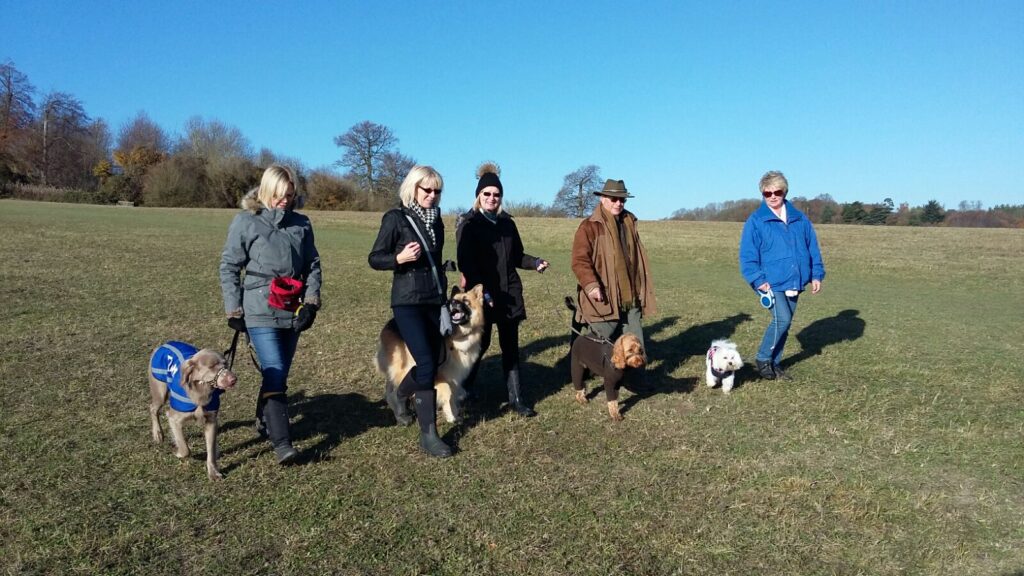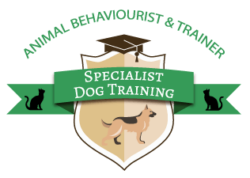
Taking your dog out for a walk in one of the many country parks we have around the country should be an enjoyable event, where the space can be enjoyed not only by dogs and owners, but families, joggers, cyclists and walkers.
However, on entering the park, we observe a very different culture. Dogs are immediately let out of the boots of cars and allowed to run off, while the owner gets ready and picks up that all important text.
How many times do you hear the above phrase when a dog or dogs have been running towards your own dog, who has now stood still waiting for the impact?
Yes, the majority of people do have friendly dogs. Yes, owners are responsible and have taken their dog’s to puppy socialisation classes. And yes dogs are social creatures.
But, and this is the big BUT, why let your dog run up to another dog or dogs if you do not know the other dog? Why do we expect our dogs to have the social skills to know how to behave without teaching them? Would we apply the same rules to our children or family?
Many dog owners can relate to story after story of these types of greetings ending disastrously.
However, we are told to take our puppies to socialisation classes and/or puppy classes so that they can learn how to be sociable around puppies and dogs. Whilst this may seem like a good foundation to begin with, are they really taught to be social in the real world or do we expect the puppies and/or dogs to transfer this learning themselves. The answer here is probably no!
This article is certainly not to criticise socialisation or training, but it is here to make owners and trainers think of why so many dogs (even though they are friendly) are just being a huge nuisance to other dogs and owners. Behaviours that are often seen range from mounting behaviours, groups of dogs crowding a dog, chase behaviour and aggression.
Teaching life skills and basic training should go hand in hand in any dog training class and the importance of being a responsible owner is paramount to owning a well-mannered dog. What you learn in a dog training class should not stay in a dog training class, it should be transferred to everyday life. Allowing your dog off lead so that it can interact with the owner, sniff, and play is all part of the enjoyment of owning a dog.
But we are told that dogs need to socialise because they need to learn how to interact with each other. They need to play and be social with every dog they meet. They need to be told off by other dogs, because it will teach the dog lessons and it will teach the dog not to do this again. WHY? Why does there have to be a disaster and an interaction that ends in catastrophe for not only the dog but also the owner and the words “well they never have done that before”. It probably hasn’t, but they probably have not had this interaction before or reaction which has ended in this particular outcome.
Can dogs play safely with other dogs. Yes, they can with dogs that they know. We certainly do not behave the same around strangers as we do with our own family or close friends, so unless we teach our dogs, they will not know either. Dogs that your dog come across, neither will know or understand how the other one will react, so why not have the dogs on lead and allow them to walk past each other so that they can acknowledge each other, but without the drama of not knowing the outcome. Controversial or common sense?
Just because a dog is friendly doesn’t mean to say that the owner has the right to allow him or her to run up to another dog that it does not know. Plus, just because an owner asks you to put your dog on the lead, is not because their dog is unfriendly and they are being unreasonable, they are asking because they are being responsible and want to have an enjoyable walk with their dog.
Are you taught these social skills at a dog training class? Are you taught that socialisation like training is ongoing and that it should be carried out daily?
I walk my dog daily and when I see another dog that I do not know, he is called back and placed on lead, we walk pass the other dog – he looks and walks on. He also has a wide selection of dogs that he has social time with from walks, to play, training and outings. Does that make him unsociable? No, of course not. He has a collection of social skills that he can use and display with dogs he knows and not have to worry about an unfamiliar dog who is charging towards him.
Canine etiquette is not just a fancy new phrase in dog training, it is all about being responsible and giving your dog life skills, rules and routines so that they are a well-mannered dog and a joy to take out to your local country park. We can make these areas safe for our dogs and safe for all who use the park.
